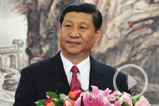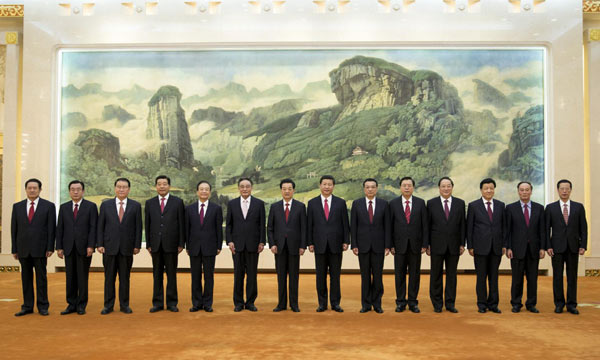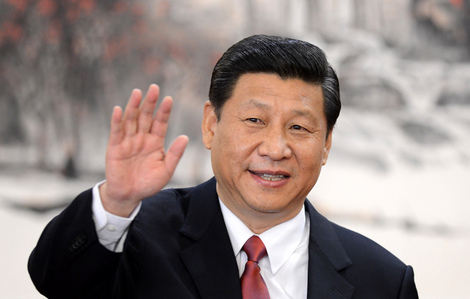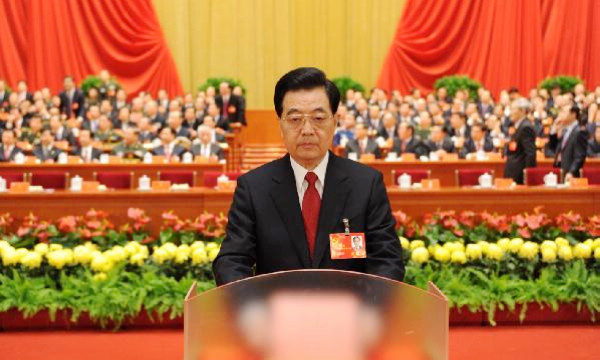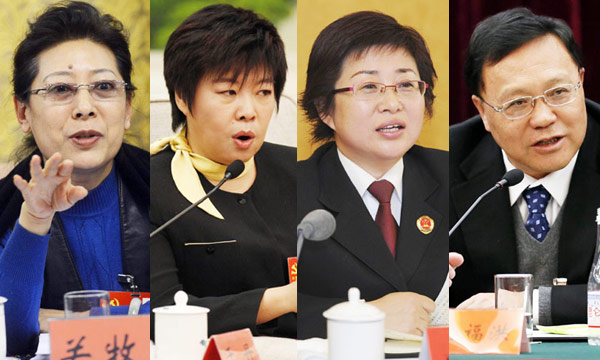Past decade's achievements led by CPC
(Xinhua)
Updated: 2012-11-06 17:20
BEIJING - China, under the leadership of the CPC Central Committee, has made a series of social and economic achievements during the past 10 years.
The CPC Central leadership, with Hu Jintao as the general secretary, has faced opportunities and challenges as well complicated circumstances both at home and abroad.
|
||||
When Hu took over as the general secretary of the CPC Central Committee 10 years ago, at the 16th Party Congress, the new leadership made the country's development as its primary job. It focused on how to deal with problems like uncoordinated economic and social development, the growing pressure of resources and environment, as well as the growing income gap, the accumulation of contradictions, environmental pollution, and resources.
In the period, China has achieved coordinated development between urban and rural areas, in economic and social fields, between humans and the nature, between domestic development and opening-up to the outside world. The country has made simultaneous progress in economic, political, cultural, social and bioenvironmental areas.
The Party leadership has taken Deng Xiaoping Theory, the Important Thought of Three Represents and Scientific Outlook on Development as its guiding ideology.
Over the past 10 years, China has achieved average yearly economic growth of 10.7 percent, far above the world's 3.9 percent in the same period. The country has taken second place in the world's GDP rally, with an average per-capita annual GDP of $5,432, up from $1,135 in 2002.
In the meantime, China has made enormous achievements in different fields, such as lifting the urbanization rate to over 50 percent from less than 40 percent, completing the Three Gorges Project and the Qinghai-Tibet Railway, the hosting of the Beijing Olympic Games in 2008 and the Shanghai World Expo in 2010, and conducting manned space journeys and manned deep-sea expeditions.
Over the past 10 years, China has experienced a series of major disasters and unexpected incidents. These include the outbreak of SARS (Severe Acute Respiratory Syndrome) in 2003, the catastrophic earthquake that took place in Southwest China's Sichuan province and its neighboring areas in 2008, the separatist unrests in Tibet and Xinjiang autonomous regions, and the global financial crisis.
To deal with the world financial crisis several years ago, the CPC and the Central Government had launched a package of resolutions. These include giving subsidies to the sale of electric home appliances in the countryside, tax reforms, and four trillion yuan ($634 billion)investment by central and local governments. Decisions were also made to revive 10 industries, which helped the country to gain a V-turn in its economic development by then end of 2009.
In the past 10 years, the Party leadership has attached great importance to people's health and welfare. Now, more than 1.3 billion Chinese, both urbanites and rurals, have been covered with medical insurance.
From 2003 through 2011, the government has poured 16.47 trillion yuan (42.54 trillion) into areas closely related to people's welfare, including education, health, social security, employment, and housing for low-income families.
Related Stories
A decade of achievement 2012-11-05 08:16
Overseas media view China's progress 2012-11-01 09:12
China's rural achievements in the past decade 2012-10-24 14:05
Development & achievement 2012-07-11 11:19
UNDP chief praises China's achievements 2012-05-19 07:31
Progress in rule of law 2012-10-10 08:06
China makes great progress on sustainable development 2012-06-18 13:37
Human rights progress 2012-05-21 08:07
Small signs of progress 2012-04-26 08:12
Legal progress for all to see 2012-04-19 08:14
China has made significant progress 2012-03-16 08:45
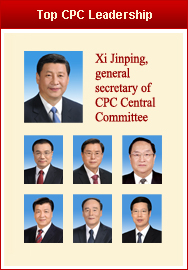
Top News
Xi emphasizes adherence to CPC Congress spirit
Top legislator urges implementation of congress spirit
Moderately prosperous China brings chances to world
Video
